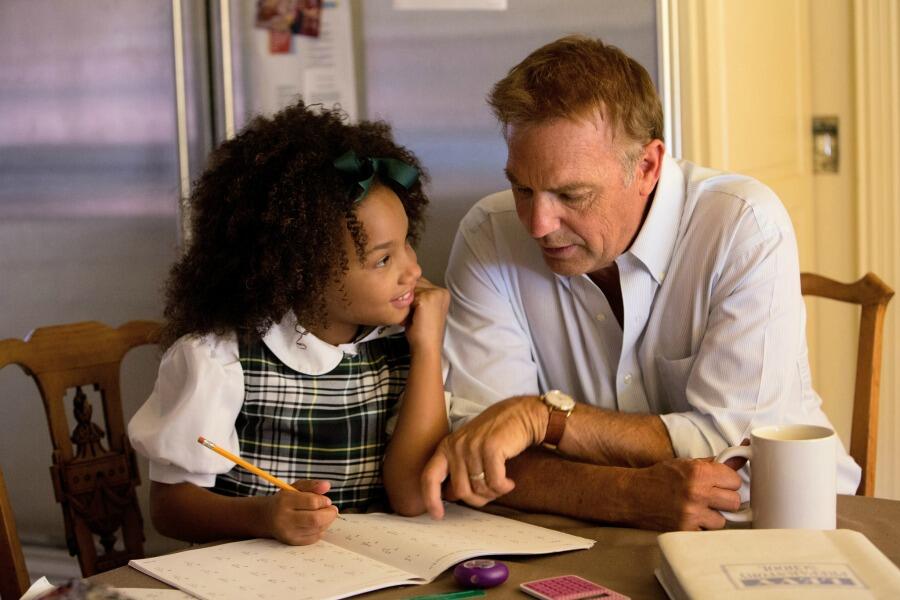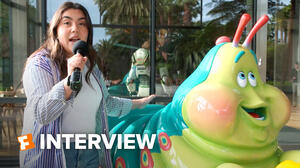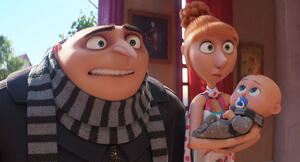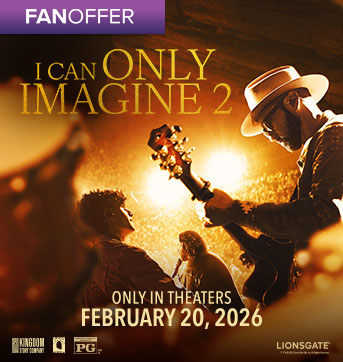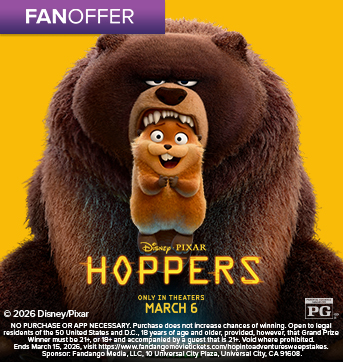
Love stories, sweeping Westerns, American baseball movies – Kevin Costner has made them all. And now, he’s captivating audiences with Black or White -- a timely story that confronts the dichotomy that is race relations in this country.
Based on real-life events experienced by director Mike Binder, the family drama follows Elliot Anderson, a grandfather (Costner) who must suddenly care for Eloise, his mixed-race granddaughter, on his own. But when paternal grandmother Rowena (Octavia Spencer) files for full custody of the girl with help from her brother-turned-high-powered lawyer (Anthony Mackie), Eloise finds herself torn between the love of two families who live in two seemingly different worlds where nothing is as simple as black or white.
Black or White is not just a movie, but a cinematic unicorn – a work that takes fierce beauty and haunting sadness and spins them into something inspiring. It’s a story rife with life lessons older tweens and teens shouldn’t miss. And when I sat down with Costner (who funded the film himself when all major studios turned it down) during the Chicago premiere of the film, our conversation framed up three compelling issues about race that parents of 12 to 17-year-olds can discuss together:
Shades of Grey: The movie brings to light many of the issues mixed-race families grapple with today. Is Eloise black or is she white? Should she stay in the only home she’s ever known with an alcoholic grandfather, or should she pack up and move to her crowded but cheerful grandmother’s house to take a stab at developing a relationship with her drug-addled father? The answers aren’t clear-cut of course, and instead, live in the grey, blurring the line between positive and negative.
As Costner says: “The film wasn’t timed for any of these things,” referring to the hyperawareness of race relations currently making headlines in this country. “But I have been very aware of racism for a long time. I grew up in the ’50s and ’60s when people used the ‘N’ word liberally, and a lot of times it wasn’t even in anger. It was used in jokes. White kids would use that word, African-Americans would use that word, and it seemed harmless. Then one day you grow up, and you realize what it actually means. It’s an ugly word with real weight, and I’m ashamed I used it. However, I’m encouraged that the word is no longer accepted.”
Think Beyond Color: The idea of eradicating color blindness in a society so hyperfocused on it isn't realistic in my mind. But what is within our grasp is raising independent thinkers who can look beyond color before defaulting to knee-jerk reactions based on nothing more than tired stereotypes.
As Costner says: “Sometimes our differences in life aren’t about race. We need to embrace our differences because there’s so much to be gained from them. When I see someone, I do see black. I do see Hispanic. But it’s my second and third thoughts that will define me as a person. And if I go down the line and those second and third thoughts are about hate and fear, then that’s going to play into racism. But my first thought doesn’t define me. The miracle of those simple words has really helped me, and I hope it helps other people too.”
Real Talk: So much can be gained from having open, honest conversations about sensitive issues. Getting to that point can be difficult however, especially when it comes to something as weighty as race. We sit at a global table, and with that comes strong opinions and feelings about what it means to be a white/black/brown/biracial/multiracial person in a world that seemingly insists on subtle segregation. It keeps us from seeing past our own noses, and nothing will change if we don’t move forward.
Costner notes: “The first time I saw this movie was on paper and I had to imagine what it could be. And when I read it, it was electric. I realized conversation we’ve been trying to have is so delicate, and we haven’t really been able to have it. We still have so much work to do, but part of the job is to not let the conversation break down. Race relations are broken, but the thing that guides all of us is a measure of love, and a high measure of understanding and a lot of empathy. White people are never going to understand what it’s like to be black. It doesn’t matter how in tune you are, and we have to acknowledge that. But how do we move forward? We have to talk about it. And if this movie help to start that conversation, then we as actors will have done our job.”
Black or White opens in theaters on January 30.
